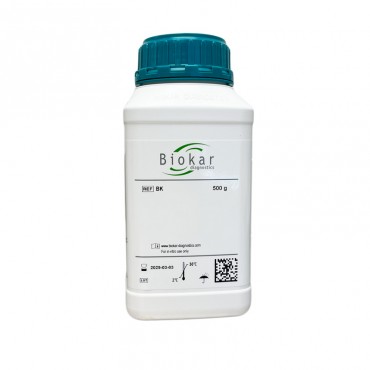- +Products
- +Allergen testing
- +Culture Media - reagents and reference material
- +Environmental testing solutions
- +Laboratory Consumables
- +Laboratory equipment
- +Microbiology equipment
- +Neogen® Food Safety Solutions
- +Temperature & Humidity Monitoring
- Services
- Support
- News
- +About Us
- Contact




Symphony Agar for Yeast & Mold
Symphony agar allows the enumeration of yeasts and molds in all human and animal food products regardless of their water activity. It can also be used for the control of environmental samples in production areas. In the case of water samples, they can be analyzed by membrane filtration using this media.
The SYMPHONY agar is certified by NF VALIDATION for the enumeration of yeasts and molds in all human and animal food products under the reference number BKR 23/11-12/18.
This method allows the enumeration after only 54 hours instead of 5 days with standard methods NF ISO 21527-1 and NF ISO 21527-2.
Available in dehydrated medium: 500g vial.
Also available as:
Ready-to-use medium : 20 Petri plates Ø 90 mm (BM20208).
Ready-to-melt medium : 10 vials of 200 ml (BM19108).
In compliance with regulatory requirements, a USDA permit (VS 16-3) is mandatory for shipments from Canada to the USA due to the inclusion of peptone, an animal byproduct.
The SYMPHONY agar method is certified NF VALIDATION, according to the validation protocol ISO 16140-2:2016, for all food and feed products. Refer to the certificate available on the NF VALIDATION website for the end of validity date of the method. The reference methods used for the validation are NF ISO 21527-1 and NF ISO 21527-2.
The choice of peptones, carbohydrates and growth promotors were specially selected in order to optimize the rapid growth of yeasts & molds. Rose Bengal is assimilated by yeasts which facilitate their enumeration by coloring them pink.
The selective system, associated with the pH of the media, insures the inhibition of the majority of bacterial contaminants. The media has been conceived in a way that reduces the propagation of Mucor thallus, which facilitates their count after only 54 hours of incubation. It is also well adapted to the enumeration of mold spores.
Related Products





